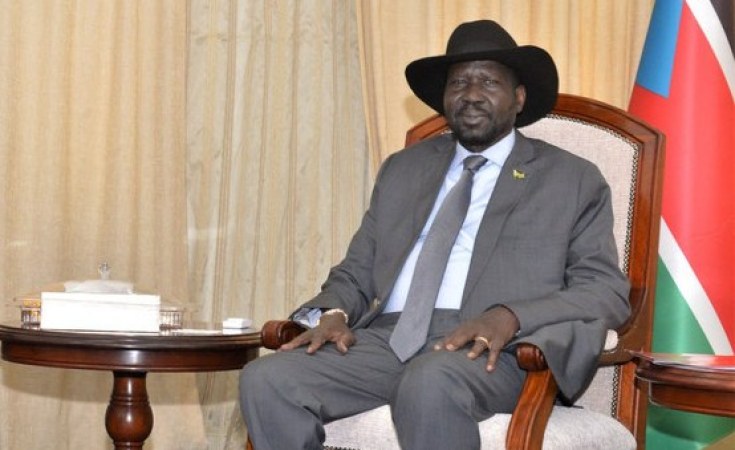Juba, South Sudan — South Sudan's president is appealing to the more than 2 million South Sudanese refugees living in neighboring countries to start returning home. Salva Kiir says his government will provide returning refugees with the necessary security.
There are more than 2.3 million South Sudanese living as refugees in nearby countries such as Kenya, Uganda and Egypt. Speaking Wednesday in Juba, Kiir said repatriating those citizens was at the top of the government's priority list.
"For those who will opt to return to their habitual areas of residence, the government will provide security and will work jointly with partners to organize logistics around what is needed to resettle successfully in those areas," Kiir said.
He made the comments while speaking to representatives of South Sudan's large population of internally displaced people. Kiir said the country also intended to resettle the IDPs, though not necessarily in the areas from which they came.
"Equally, for those who cannot go back to their residence, we have spoken with authorities in the states where IDP camps are located, to set aside land and to resettle them," he said. "I must add that this land, once designated, must be allocated to IDPs and IDPs only."
Pope Francis had a similar gathering with IDP leaders in Juba during his visit to South Sudan earlier this month.
Persuasion needed
Kiir pledged the government would provide the IDPs with security, even though he acknowledged that it would take a lot of persuading for them to leave their current protected areas.
Many South Sudanese IDPs were displaced by the 2013 civil war that broke out when Kiir's forces clashed with those of opposition leader Riek Machar.
James Kok, an member of the national parliament, echoed the president's message of declaring 2023 as a year of reconciliation, forgiveness and development.
"This message must be sent to all South Sudanese people to let them know that the president has forgiven people this year, and people should also forgive him, so that individuals can continue to move forward and develop the nation," Kok said.
In calling for the resettlement of refugees and IDPs, Kiir said nothing about South Sudan's continued political or economic challenges. The country has yet to fully implement the 2018 peace accord that ended the civil war, and parts of the country are dealing with chronic violence.
In the Upper Nile region, intercommunal violence, mostly caused by cattle rustling, has sparked a new wave of displacement.
A chief in Unity state, Juma Nyundeng, said the IDPs made it clear to the president that all they wanted was peace.
"We no longer want to see bloodshed," he said. "People are fighting in Upper Nile, and we don't want people from Upper Nile, Abyi and Twic fighting each other.
"All we want is peace and our country back so that we can stay together."
South Sudan has not seen an extended period of peace since winning independence from Sudan in 2011.


